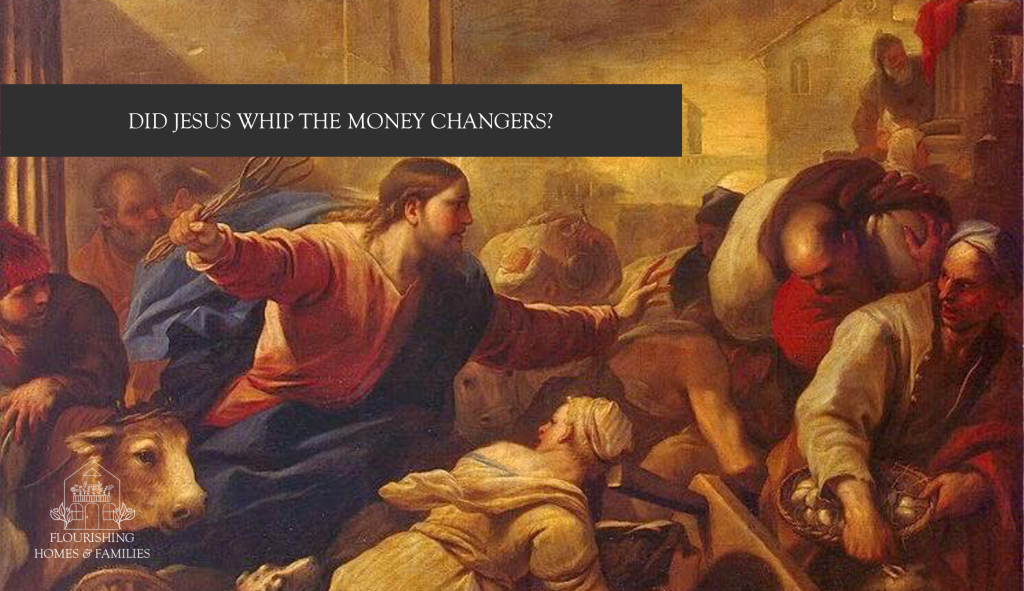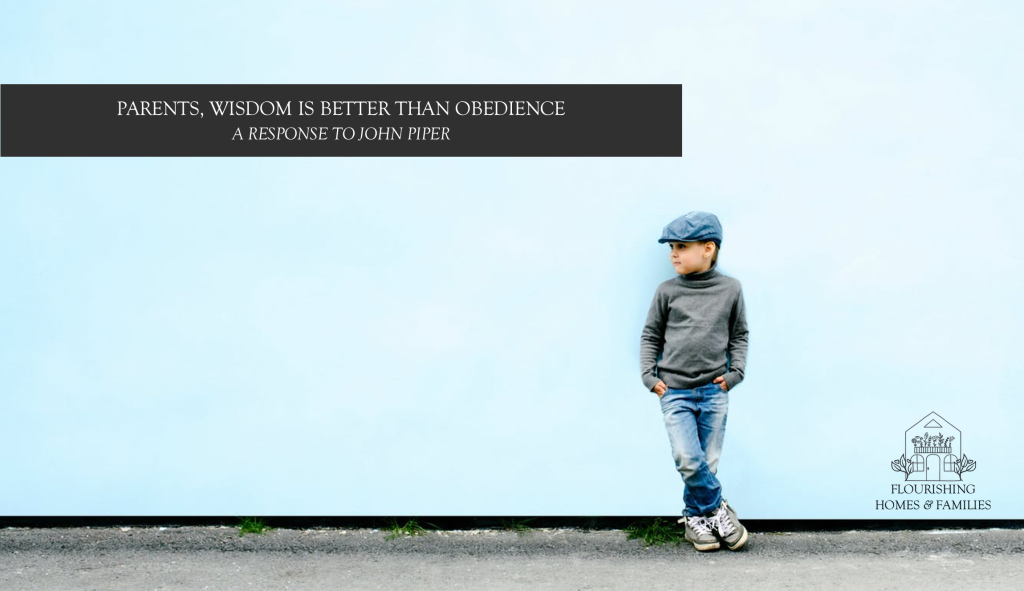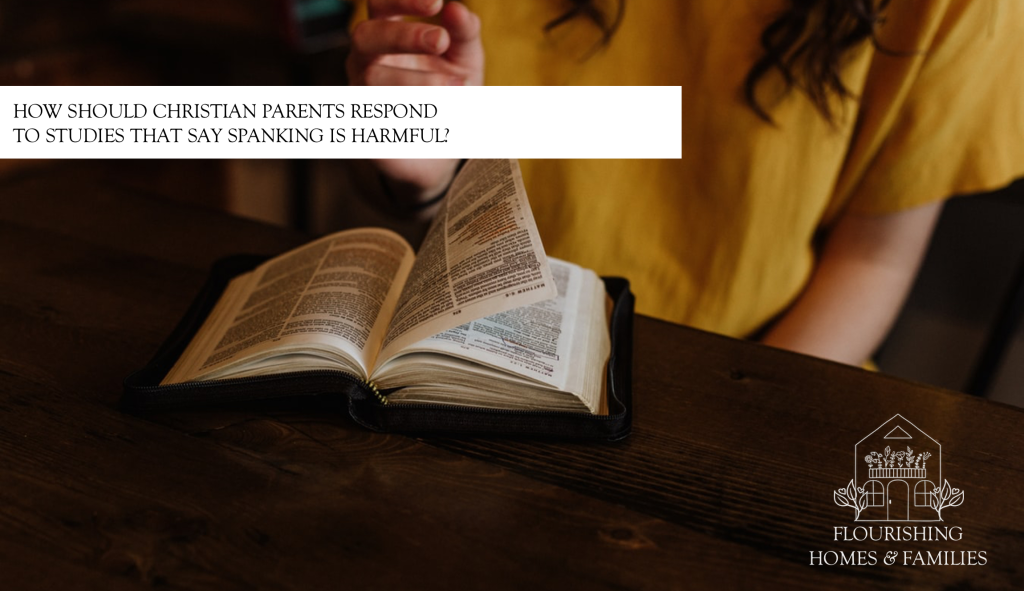
I want to talk to you parent to parent.
For many of us, it didn’t take long to see the obvious error + danger that comes with spanking a child to get them to comply. Hitting kids = not good. It isn’t all that difficult to understand.
But what I want to share with you is that being a gentle, peacemaking parent is a whole lot more than just not spanking.
Not spanking does not equal gentle parenting.
The first is a step in the right direction! The latter is a lifestyle that must be learned and practiced consistently by parents.
Being a peacemaker parent comes from an understanding and appreciation for who your children are, who you are, and who Christ is. If that is a new concept to you, you can read more about that here.
Operating as a person of peace in the raising of our children is such a gift to them and goes far beyond the absence of spanking.
If we choose not to spank but continue yelling, shaming, punishing, and other loud and damaging modalities, we are not peacemaker parents!
A peacemaker parent is Christlike + bursting with the fruits of the Spirit.
Questions to ask yourself in a crisis as you cultivate and pursue being a peacemaker:
Am I operating in the fruits of the Spirit (love, joy, peace, patience, kindness, goodness, faithfulness, and self-control) even when confronted with conflict or crisis?
But the fruit of the Spirit is love, joy, peace, patience, kindness, goodness, faithfulness, gentleness, self-control; against such things there is no law. Galatians 5:22-23
How would Jesus answer my child right now?
The one who says that he remains in Him ought, himself also, walk just as He walked. I John 2:6
The one who says that he remains in Him ought, himself also, walk just as He walked. I John 2:6
Are my hands and arms open to give love + grace to my child in their time of need?
I have spread out My hands all day long to a rebellious people, Who walk in the way which is not good, following their own thoughts. Isaiah 65:2
I have spread out My hands all day long to a rebellious people, Who walk in the way which is not good, following their own thoughts. Isaiah 65:2
Is my voice soft + gentle or is it big + scary?
A gentle answer turns away wrath, But a harsh word stirs up anger. Proverbs 15:1
A gentle answer turns away wrath, But a harsh word stirs up anger. Proverbs 15:1
Would I be proud to show someone how I am confronting this situation?
Be diligent to present yourself approved to God as a workman who does not need to be ashamed, accurately handling the word of truth. II Timothy 2:15
Be diligent to present yourself approved to God as a workman who does not need to be ashamed, accurately handling the word of truth. II Timothy 2:15
These questions are hard to ask ourselves sometimes–and we need to remember that the Lord always gives us grace as He empowers us with His Spirit. Chances are, there will be many times that the answers to these questions are "no". But we keep trying and keep working toward the goal of being a peacemaker.
At the end of the day, we do our best as parents. There is no perfect parent, but we do have a perfect model–Jesus Christ. We always look to him. The author and finisher of our faith and we model His methods, His ways, and His teaching the very best that we can as we raise our little disciples to be like Him.
You might also like
 |

When it comes to parenting styles we must first take a moment to think about our goals.
I think oftentimes this decision is made based on how an individual was parented. We either think we turned out fine and try to replicate what we remember of our experiences or we feel some level of trauma and we do 100% the opposite. Now both of those instances are from a position of goodwill toward our children, but is it possible that there is more to this decision than that? I would say a very hearty yes.
That is where we must allow ourselves to be vulnerable (maybe even with our own selves) and make some serious choices.
What is important to you as a parent?
I remind myself often that the short period of time my children are here at home under my roof is really only a small part of their lives. My job is to train them to be hard workers, critical thinkers, and steadfast individuals who are unwavering in the truth.
These life skills don’t develop through a parent’s use of fear tactics and punishments to force compliance.
Actually, science tells us that the brain isn’t receptive to developing positive behaviors and habits when fear and punishment are involved.
Fear and stress send the brain into crisis mode and the person becomes like a deer in the headlights just looking for the fastest way out. Compliance is obtained, but it isn't heartfelt obedience or from a place of love and trust. It's a survival instinct. The more effective way to train our children in these skills is from a position of peace.
It is in this place where children are ready and able to learn, create habits, and correct behavior.
The Bible tells us something about this too—this scripture verse has become a motto for me and I refer to it nearly every day…
“And the seed whose fruit is righteousness, is sown in peace by those who make peace.” James 3:18NASB
How cool is that?!
If we want our children to develop into strong individuals, rooted in righteousness, and bursting with fruit, what do we do? We sow the seeds in peace and we become people of peace.
The heart of peacemaker parenting is this…
Christ is our perfect example.
He showed us peace, purchased peace, and gave us a sufficient measure of grace to operate in that peace through the power of the Holy Spirit.
Something else that is neat is the fact that modern neuro-science backs up God’s plan for family peace. How could it not, right?!
If you are new to peacemaker parenting and are ready to learn, then buckle your seatbelt and head over here!
No need to feel overwhelmed here! I’m going to leave you with just a couple simple things to help you as YOUR mind is processing and learning. These are tools that I personally use and find really beneficial to me as a mama doing my best to be a peacemaker.
- Before responding to a crisis, ask yourself “am I in a place of peace?”
Sometimes it takes a pause and a deep breath, sometimes it takes a handful of mini Twix bars. Whatever the case may be, just get in that place of peace before addressing a crisis. This one gets easier as you practice it. And you’re going to find that if you come into a storm with your peace, it helps calm the chaos around you. - Re-evaluate and determine if you are seeking justice or if you are seeking peace.
There is a big difference here! I know this because I’ve been on both sides. Sometimes we just want a punishment to fit the crime, but that isn’t where we peace, is it? When the goal is peace, there is often true repentance and resolution. Instead of looking to bring justice, look for ways to bring peace. - Speak and declare peace over your home. Find God’s promises for peace. Be proactive and pray them over your family. Here are a few of my favorites—> Numbers 6:24-26 | John 14:27 | Isaiah 26:3 | Psalm 34:14 | Hebrews 12:14 | Ephesians 4:3 | 2 Corinthians 13:11

Sometimes Christians get really concerned that our culture is influencing how we interpret the Bible. I understand that concern and think it’s a very real issue. But I think we often forget that culture has been influencing how we understand Scripture for a very, very long time.
For example, the Romans thought they were the new covenantal nation just a few hundred years after Christ, likely because they were essentially an unstoppable force and they perceived themselves to be especially blessed by God because of their military successes. (Does that sound familiar?)
It’s really interesting to examine how art influences our interpretation of Scripture. A classic objection to Gentle Parenting is that Jesus whipped the money changers in the temple. But did He really?
Let’s look at what the Bible actually says about this story, and provide some clarity to common assumptions and culturally-influenced interpretation.
ASSUMPTION: JESUS WAS ANGRY AT THE MONEY CHANGERS
Scripture does not say Jesus was angry during this event. It’s certainly a possibility that was angry. We are reading it with our own preconceived ideas if we attribute His actions to anger, because Scripture is silent on whether or not He was angry.
We can tell from Scripture that He was not acting in a fit of rage or flying off the handle when He cleared the temple. We can be very nearly certain that He didn’t lose His cool and start going crazy. How do we know? John and Mark both suggest His actions may have been planned. In Mark 11:11-19, Jesus visits the temple but waits until the next day to do anything, and in John Jesus takes the time to make a whip from cords (John 2:15.) These both indicate that His actions were not impulsive or “knee jerk reactions” to the situation playing out at the temple.
ASSUMPTION: JESUS USED A WHIP ON THE MONEY CHANGERS
We do know that Jesus used a whip! But nothing indicates that He used it on people.
Scripture tells us there were livestock in the temple and that Jesus drove them out with a whip He constructed. This might sound a bit intense or dramatic, but it was the cultural norm to use a whip to herd and direct livestock. He was simply using a common tool for the common work of herding livestock.
ASSUMPTION: JESUS YELLED AT THE MONEY CHANGERS
Mark and Matthew clearly state He was teaching when this happened and that people were amazed at His teaching, and no Scripture indicates that He yelled at them.
I suspect most scholars view this interaction as an angry outburst because the Greek word for “overturned” the tables is “katastrephó” (catastrophe) and that sounds chaotic and crazy. I’m a bit rusty on my greek, but I think katastrephó is descriptive of the act of overturning, not the motivation behind the act. Additionally, the word does not inherently imply it was an outburst.
ASSUMPTION: JESUS WAS CLEANSING THE TEMPLE
This assumption is easy to make because most Bibles provide a story title that reads something like “Jesus cleanses the temple.” Here’s the thing we often forget, though: animals in the temple were a normal occurrence, and selling animals for sacrifice and paying a temple tax were required by Jewish law. The exchange of money itself would not have been cause for concern. Some commentators suspect that the focus had grown beyond service to profit and that unfair prices had essentially turned the temple courts into an exploitive marketplace.
Other scholars believe His motivation was symbolic. “Because Jesus drove out people and animals that were essential [to temple life], many scholars view his action not as a cleansing of the temple but as a symbolic act predicting its destruction. This puts Jesus in line with the actions of Israel’s earlier prophets and agrees with the words that John 2:19 has Jesus utter on this occasion: “Destroy this temple, and in three days I will raise it up.” Jesus seems to have envisaged that the temple would be removed to make room for whatever more perfect state of affairs would replace it in the kingdom of God.” (James F. McGrath, “Jesus and the Money Changers.)
If His actions were symbolic, there’s literally no reason He was acting in anger, and, of course, there is no Scriptural evidence to suggest He was.
WHY ARE THESE ASSUMPTIONS SO WIDELY BELIEVED?
We don’t usually think about how art impacts our interpretation of Scripture, but a vast majority of the art depicting this story shows Jesus with His hands raised, whip in hand, coming at the people.

Christ Cleansing the Temple by Bernardino Mei

Christ Expelling the Money-Changers from the Temple by Nicolas Colombel

Christ Driving the Money Changers out of the Temple Valentin de Boulogne
It’s easy to see how our understanding of this story may be influenced by the cultural understanding of cultures before us. Reading Scripture without cultural bias is very nearly impossible. But if we are to rightly divide the Word of Truth (II Timothy 2:15), we cannot be content only to understand Scripture through our cultural bias. We must be willing to ask hard questions of the text and ourselves and pray for wisdom as we seek the heart of God.

In general, we try to present in a positive way what the Bible actually says about parenting and let our followers draw the contrasts to more traditional perspectives. But a blog post “Parents, Require Obedience of Your Children” by John Piper twists Scripture in subtle, but significant ways, and is once again making its rounds within our circle of friends, so we decided a response was in order.
1. Beware making implicit commands from Scripture.
Piper writes, “Requiring obedience of children is implicit in the biblical requirement that children obey their parents.”
This statement boldly presumes to know what God should have said, rather than what God did say. This is the same road the Pharisees trod.
If the Spirit wanted to tell fathers they should require obedience of children, He could have done so. After all, He was already giving commands to fathers in this passage! What the Spirit commands is sufficient, He doesn’t need our human ingenuity to create more commands.
Nor does Piper’s logic hold up in the context of Ephesians 5-6. According to his logic, it makes no sense that God would require wives to submit to their husbands and yet not require that Christian husbands should require submissive obedience from their wives. This is a wide open door for domestic abuse. But what about husbands? By the same logic, Christian wives should require love from their husbands. Unless one fundamentally redefines love, this is absurdity. Yet this is kind of logic that Piper employs to twist Ephesians 6:1 from a command given to children into one given to parents.
2. Obedience is a part of the gospel, but it is the gospel that enables that obedience.
Piper writes, “Parents who do not teach their children to obey God’s appointed authorities prepare them for a life out of step with God’s word — a life out of step with the very gospel they desire to emphasize.”
External compliance and genuine obedience are not the same thing! God is not after external compliance to certain rituals and behaviors. He is after our hearts! He pursues genuine, joyful obedience from us. This requires the power of the Spirit regenerating us to bring us into obedience to Him. No amount of practice complying to our parents’ commands will ever help us joyfully obey God. No one in the entirety of human history has learned to obey God by obeying their parents. No one.
3. It is possible to teach children to have wisdom. This is far better than mere obedience. It’s a little slower and sometimes looks messier in the moment, as the best way to teach wisdom is by allowing a child to make choices, live with the good or bad consequences, and help them connect their experimental lessons to the wisdom of Scripture. This prepares a child for all of life, where they need wisdom (daily), not just unquestioning obedience (almost never).
Many a parent has come to grief by inculcating unquestioning obedience in their child. Later, as parental influence naturally waned in their maturing child, they discovered their child was still very compliant and obedient. Except now they were listening to others who did not have their child’s best interests at heart. Inculcating wisdom is far better than obedience.
4. Consistency is the key, not obedience. A wise parent consistently calls their children to meet age-appropriate expectations. Yet this doesn’t need to devolve into a battle of the wills.
Piper says, “Little children, under a year old, can be shown effectively what they may not touch, bite, pull, poke, spit out, or shriek about. You are bigger than they are. Use your size to save them for joy, not sentence them to selfishness.”
Yet God never calls us to fight or defeat our children. Instead, He calls us to train them and instruct them (Eph. 6:4). The wise parent consistently lays before his child the path of life (as found in Scripture) and lets them experience the consequences of choosing unwisely. These lessons are far better learned than the ones created through the artifice of obey or be punished.
5. It is easier to require obedience than to understand your child. Lazy or permissive parenting is a bad idea, but that doesn’t make immediately punishing a child for every disobedience a good idea. This is a false dichotomy. We don’t have to choose either of these extremes.
Far harder than letting children have their way or demanding children do everything your way, is trying to understand a child. Their needs and desires, their capabilities and passions may be expressed in immature or inappropriate ways, but those are opportunities to make sure a child is heard, understood, and given the opportunity to learn how to do it better in the future. This bears the fruit of wisdom far better than simply punishing disobedience.
6. There is an alternative to generational cycles of passivity or punishment: Gentle Christian Parenting. It’s rooted in treating our children in the same way God, the ultimate example of fatherhood, treats us. We take seriously that we should bear the fruit of the Spirit at all times, including in how we discipline our children. We note that dozens of times the apostles command Christians to be gentle, compassionate, kind, and respectful. These commands come with no exceptions for children. When Paul writes “Be kind and compassionate to one another, forgiving each other, just as in Christ God forgave you.” there is no clause that excludes children. When Peter says “Show proper respect to everyone.” he doesn’t add a disclaimer that excludes children.
7. There is no path from external compliance to joyful obedience apart from the regenerating work of the Holy Spirit.
Piper writes, ”Children need to obey before they can process obedience through faith. When faith comes, the obedience which they have learned from fear and reward and respect will become the natural expression of faith.”
There is a disconnect here between a biblically grounded understanding of salvation and a concept of parenting that is more rooted in tradition than the Bible. Put simply, if there is nothing you can contribute to your salvation, there is also nothing your parenting can contribute to your children’s salvation.
That is not to say that parents should stand by passively and allow sin to ingrain patterns and habits in their children! We should teach them the wisdom of Scripture, help them learn to obey God, and when they sin let them experience the natural consequences of their sin.
But to suggest that forced obedience to parents naturally leads one to joyful obedience to Christ mocks the wholly saving work of Christ and the work of His Spirit in us.
8. Happiness isn’t found in always expecting to get what one wants, but neither is it found in always obeying a sinful and sometimes selfish person. Children flourish in families where they are genuinely respected as humans made in the image of God and where parents and children engage cooperatively to achieve divinely ordained goals. This is how God calls Christians to live, whether in the microcosm of the family or the community of the church.
9. Theological formation occurs first and deepest by parents. What a mother and father show their child about love and authority is what that child will believe about God. Often for the rest of their life. So it is important to represent God well. Yet since God is slow to anger and extraordinarily patient (1 Tim 1:16), why should we represent Him by immediately punishing every disobedience? That’s not how God responds to the disobedience of believers. Instead, God leads us to repentance, not through discipline, but through kindness (Rom 2:4).
Parents, you can do this, and you can do it in a way that bestows dignity and respect to your children as little image-bearers of God.
You can parent through disobedience while bearing the fruits of the Spirit: love, joy, peace, patience, kindness, goodness, gentleness, faithfulness, and self-control for your children. It requires first realizing that our children are our closest neighbors, and God has called us to love them as we love ourselves. And He’s called us to treat them as we want to be treated.
And you can teach your children that Biblical obedience is rooted in relationship, not rule-following.

In 2016 a study released by child development and family science experts from The University of Texas at Austin revealed that spanking is closely associated with anti-social, aggressive behavior, depression and anxiety, and an increased risk of thirteen detrimental outcomes. News articles linked on social media are rife with emotionally-driven debate.
How should Christian parents respond to studies that say spanking is harmful?
FIRST, LET’S TALK ABOUT HOW THEY SHOULD NOT RESPOND.
1. Christian parents should not dismiss the evidence on account of their own emotional comfort. Facing articles and reports that feel condemning of your own childhood or your own parenting is emotionally difficult. We must keep in mind that ignoring scientific evidence because it makes us uncomfortable is merely willful ignorance. It is neither intellectually honest nor God-honoring.
2. Christian parents must not perpetuate easily dispelled myths about not spanking. This is, at its core, bearing false witness, which God’s people are commanded not to do. Some myths that are easily refuted:
Myth: Young adults today are so disrespectful because they weren’t spanked/Prisons are filled with adults who weren’t spanked as children.
Fact: In 1999 A study revealed that 94% of parents had utilized spanking by the time their child was preschool age. In 2011 a study corroborated these findings stating that 50% of children had been spanked by the time they were twenty months old. Further, college students who were spanked as children are more likely to engage in illegal behavior.
Myth: Countries that have banned spanking have higher crime rates.
Crimes rates, gun ownership rates, and prison populations have all fallen in countries that have banned spanking, and at a sharper rate than in places without such laws.
Myth: The studies are all flawed and do not differentiate between spanking and abuse. Fact: While there are limitations to any meta-analysis, most recent studies do make a clear distinction between “appropriate” spanking (occurring as rarely as twice a month), and abusive physical punishment that leaves bruises.
3. Christian parents must not claim that because they turned out fine all children who were/are spanked will turn out fine. 17 million children in the United States have been diagnosed with a mental disorder (ADHD, depression, anxiety, and/or behavior problems). The association between spanking and mental/behavior issues is more solid than the association between secondhand smoke and lung cancer. We cannot project our own outcomes on those of the upcoming generation.
SO HOW SHOULD CHRISTIAN PARENTS RESPOND TO THESE STUDIES?
1. We must remember that God is the Creator of science. He not only created the brain, but He also created us with the ability to learn and evaluate evidence. Advancement in science (especially neurobiology) is a gift from our Creator to help us understand His creation.
2. We must admit that spanking is a cultural tradition, not a Biblical mandate. Nowhere in Scripture are parents commanded to spank their children. (We suggest that even the handful of verses in Proverbs are not speaking of using a rod on children but on young adults.) Modern-day spanking is merely a tradition of men that has been taught by leading Christian parenting gurus for less than 100 years.
3. We must recognize that spanking and discipline are not synonymous. While the evidence is clear that spanking has negative long-term outcomes, we cannot throw out all discipline. Children need teaching, guiding, rebuking, correcting, and discipline. They need the opportunity to experience consequences, and to make things right when it is within their power to do so. The root of discipline is disciple. We must be diligent to disciple our children and not fall into permissive (often equally detrimental) parenting.
4. We must look for alternative ways to discipline (disciple) our children that align with Scripture. This can be tricky, and even frustrating when spanking is all we know. Thankfully there are many Scripturally-sound resources out there! We recommend:
Resources:
- Spanking and Child Outcomes: Old Controversies and New Meta-Analyses
- Does Outlawing Spanking Lower the Crime Rate Years Later?
- College students more likely to be lawbreakers if spanked as children
- Spanking children: Why does it happen and how does it affect development?
- Corporal Punishment by American Parents: National Data on Prevalence, Chronicity, Severity, and Duration, in Relation to Child and Family Characteristics
- Data and Statistics on Children’s Mental Health









